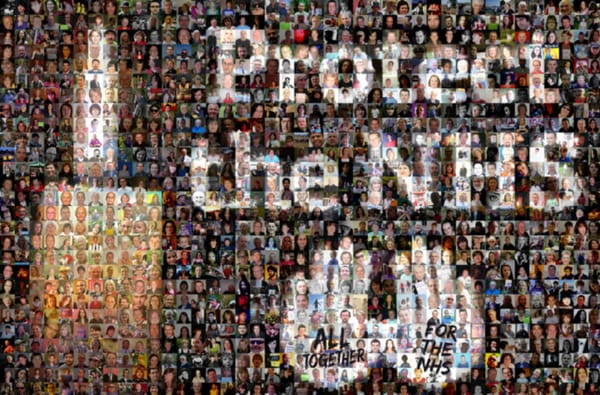Are we medicalising personality?
Tessa Davey thinks sometimes we cross the line when it comes to diagnosing mental health disorders vs personality traits.

None of my friends from home have mental health problems. This is in small-town, rural Wales, where knowing about the wider world isn't really a thing, and buzzwords like self-care and mindfulness might as well be in a totally different language, or are laughed at from behind a veneer of defiant stoicism. This isn't to say that some people in my hometown don’t suffer like my friends in London, but certainly more of them claim to be happy. Maybe it’s the country way of life, or maybe it's the lack of awareness that all too often leads to self-diagnosis and, like a self-fulfilling prophecy, misery.
Does the hyperawareness of issues like social anxiety and mental health problems help diagnose and give us the vocabulary to discuss our issues, or does it merely serve to overmedicalise personality – something that in turn makes people unhappy?
Having words to describe ourselves can give us an identity. It can help us easily share what we are experiencing and help us find guidance and ways to cope. But there comes a point where these descriptions become our whole identity, we become nothing more than a collection of precisely defined traits. When these are our defining features, rather than simply being aspects of our personality, we can lose track of who we are and use them as excuses to inhibit ourselves.
There is scientific evidence that acting happy can raise your mood and adjust your brain chemistry. There is also evidence to suggest that thinking you should be miserable can make you sad. Don’t get me wrong, I’m not for a second suggesting that those who truly are suffering from medically diagnosable mental health problems or social issues that affect their quality of life are doing anything wrong by identifying these issues but some people hide behind them, which can have a negative impact.
Instead of just calling themselves a bit shy, people are jumping on the Youtuber-backed trend of self-diagnosis, claiming social anxiety for example and using that as an excuse for avoiding things that they actually like to do. This isn’t everyone – a lot of people use it as a starting point to find tools to work on things they want to change, but for others it justifies a complacency.
When we force our personality into boxes, we are sometimes forced into manufacturing problems. As soon as we’ve found a problem, we can then fall into this cycle of being unhappy because we think we should be. Sometimes ignorance is bliss, and an undiagnosed personality disorder is just a quirk.
You’d be hard pressed to find anyone who you couldn’t diagnose with some sort of personality disorder. You want a citation for that? – There are plenty in the medical literature. But why do we do need to? How is it helpful to diagnose and compartmentalise all of our personality traits? When we do that we are implicitly saying that the perfect person is one without any of these ‘problems’: a person without personality.
Awareness of mental health problems and removal of the stigma that surrounds them is hugely important, and I fully support the huge societal drive to work on these things. But some of the things we’re diagnosing aren’t problems, they’re just traits. It’s the same when we look at all disabilities as illnesses in need of a cure rather than features of people that makes them who they are: it’s alienating and dehumanising.
Given that so much mental health research is done by pharmaceutical companies trying to flog you mood adjusting drugs, does it not seem a bit sinister that we’re rushing to medicalise normalcy? It’s now normal to be diagnosed with depression following a bereavement, where in the past it would have been a given that you were grieving. If a diagnosis helps you get support, then I’m all for it, but all too often it makes people think that there is something wrong with them, and it starts an endless cycle of depression that can be hard to break.
It's really important to be able to recognise and talk about problems that we are experiencing, and familiarity with the vocabulary to do so is an important first step. But in a world where the numbers of people who claim to be suffering increases with the numbers of words we have for a problem, we should be cautious in applying these definitions to ourselves. Self-improvement is always a good thing, but sometimes instead of looking to cure ourselves from the pathology of personality, we should accept our individual differences and celebrate them.









